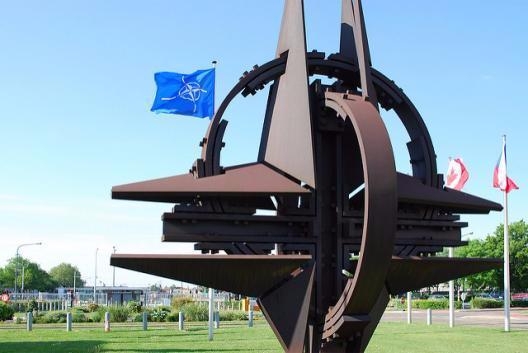 Given the level of effort that the United States has put into reinvigorating its involvement in European security, it is understandable that the president and the American people expect our allies to meet their treaty requirements. This is nothing new; the last three administrations have pushed our NATO allies to step up their funding for defense. However, the events of today require a renewed and unambiguous call for NATO member countries to meet their obligations.
Given the level of effort that the United States has put into reinvigorating its involvement in European security, it is understandable that the president and the American people expect our allies to meet their treaty requirements. This is nothing new; the last three administrations have pushed our NATO allies to step up their funding for defense. However, the events of today require a renewed and unambiguous call for NATO member countries to meet their obligations.
From our time on Capitol Hill and in various other meetings and conferences, we have met with U.S. and allied military commanders. There is a clear commitment among the uniformed services of our alliance partners to increase joint training and improve our force structure in Europe. What is needed now is a political commitment to providing the resources required to enable that cooperation.
The Obama administration took some small steps in that direction, though Lt. Gen. Ben Hodges, the commander of U.S. Army Forces in Europe, must be given a great deal of credit. He seized the initiative and pushed for more forward deployed U.S. equipment and personnel in Europe. Hodges’s leadership is commendable, but the full commitment to the alliance, the security of Europe, and Western interests cannot rest with one general’s ingenuity and sheer will.
Nor can any of this be protected with only a portion of the NATO alliance meeting their full commitment. In the words of the NATO secretary-general: “The challenges we face are the most complex and demanding in a generation. Neither Europe nor North America can tackle them alone. A strong NATO is good for Europe, a strong Europe is good for North America.”
The events of today require a renewed and unambiguous call for NATO member countries to meet their obligations. However, building the public awareness and the political will to meet those obligations is unlikely to be accomplished solely through the holding of joint press conferences on the margins of a ministerial meetings or international conferences. The leaders of NATO, European thought leaders, influencers and activists must commit to visiting the member states who are not currently meeting the funding threshold and taking the case to the people.
This outreach should be accompanied by a media campaign that takes advantage of the various social networks to bring a new generation of supports to the NATO cause. The message must be clear and unequivocal: The threats of the past are re-emerging, the threat of terrorism grows with each passing day, and we need to be more, not less, involved in the conflicts in North Africa and the Middle East so that we can meet the threat of terrorism before it reaches the shores of Europe or North America. No one country, no matter how powerful, can protect us.
We, in the West, must heed the words of Churchill, in another time — and McCain, in our time — and be in this together.
Joseph Whited is the former Intelligence Lead for the House Armed Services Committee. He spent over 18 years serving in the intelligence community.
Alex Gallo is senior associate at the Center for Strategic and International Studies and served as a professional staff member on the House Armed Services Committee.
Image: NATO headquarters, May 12, 2008 (photo: NATO)
